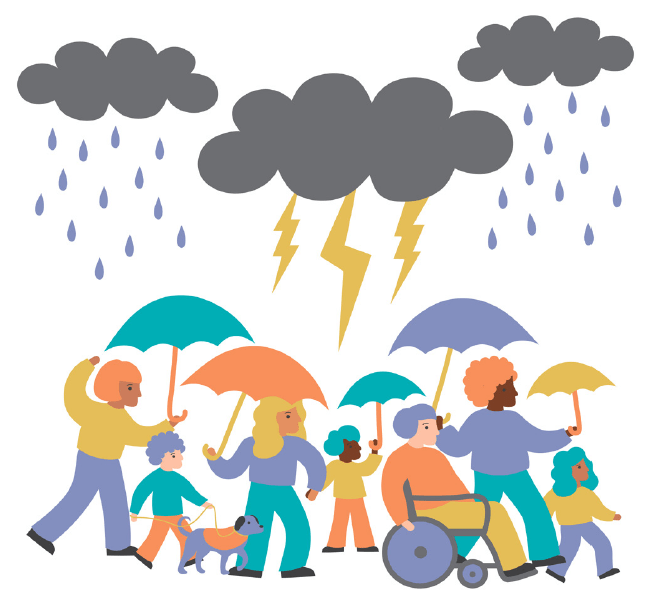
Homelessness services are underfunded … so people are faced with either returning to unsafe situations or sleeping rough either by themselves or with children. – Kelly, victim survivor
As well as getting help from family violence workers and services, victim survivors might need help to find a new home, get a new job, see a nurse or doctor, or to see someone like a lawyer to support them if they need to go to court.
There are now special courts that aim to make it safer and easier for a victim survivor to go to court. These courts have workers who can support victim survivors to figure out what help they need, understand what is happening, and offer support to access a lawyer. They also need to make sure that children and young people who are victim survivors get to have a say where it is safe for them to do so. But some people are not yet getting that chance.
There is a wide range of therapeutic supports available, but it is still very difficult for people to get the support they need, especially for children and young people. There is a need to improve the inclusiveness of services to support people and families from a diverse range of groups such as people who are Aboriginal or Torres Strait Islander, older people, people with disabilities, people who identify as LGBTQIA+, rural and regional communities or migrants and refugees.
Without somewhere consistent and stable to live, it is very hard for people to get back on track. There are not enough affordable housing options available for victim survivors and this is often stopping them from moving from crisis towards stability and recovery.
But what can be done?
We have suggested the following actions for the Victorian Government to tackle these problems (see full list for all 16 suggested actions(opens in a new window)):
Taking a more victim-centred approach
-
Find ways for workers from police, courts, The Orange Door and family violence services to work better together
- Act to make sure that children and young people are seen as victims in their own right and have a say in family violence–related court hearings.
Make sure victim survivors can access the supports they need
-
Make sure that victim survivors can get help with financial support and the law.
Funding to help services support victim survivors' needs
-
When giving funding to services, make sure they are focused on providing victim survivors with a good experience every time.
- Ask for more things that victim survivors need, like housing, help with paying rent and mortgages, help from lawyers about legal problems, financial support and other supports.
More data and monitoring to understand the issue
-
Get better information about how many people are wanting help, and how long it is taking them to get that help.
Updated

